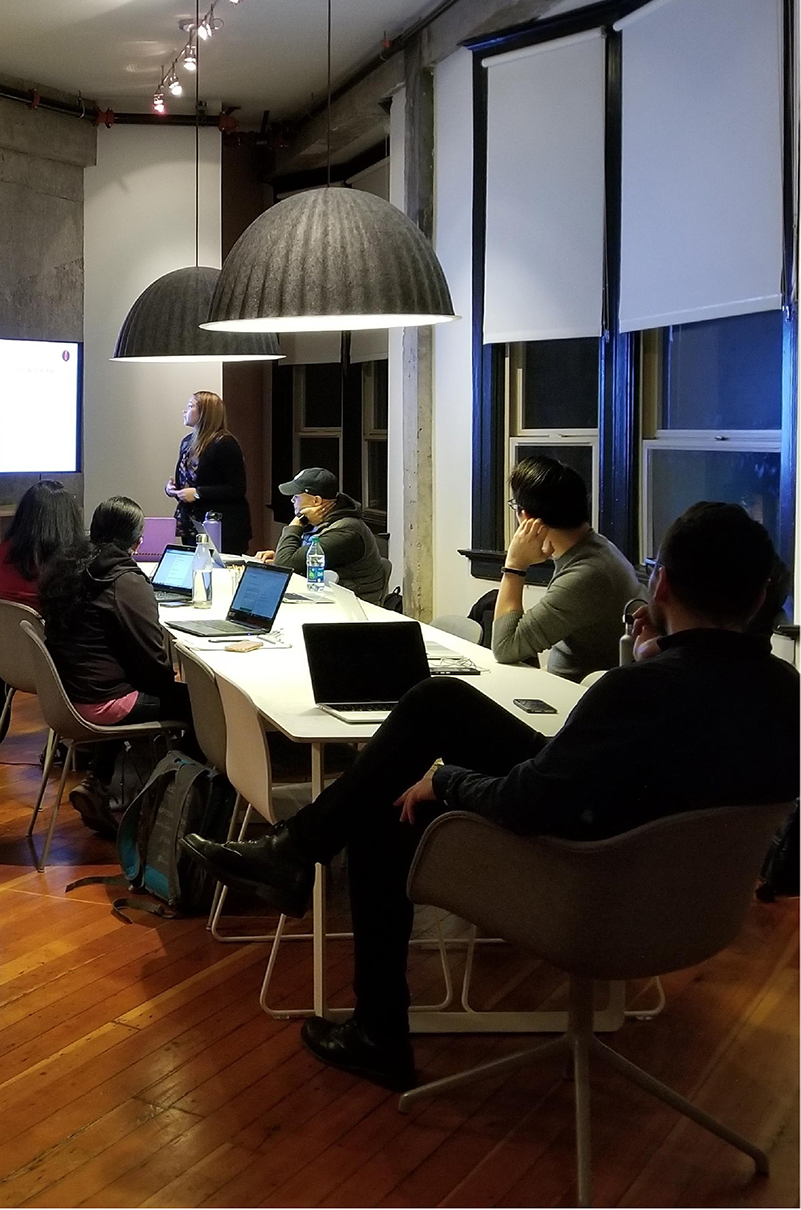CASE STUDY
Coaching an Abrasive Female Leader in Insurance
The Situation
Caitlin is a manager in the billing department at a large insurance agency. She reports to the EVP of Finance, who reports directly to the CFO.
Between her own work, training new team members, and assisting her team with their questions, Caitlin’s workload has become too much to handle. Her stress and the constant feeling that she doesn’t even have time to blink has led to abrupt and curt communication.
After several attempts from the EVP and even the CFO to help Caitlin change her ways, the organization sought out a coach.
As always, we conducted interviews with the coaching client’s coworkers, peers, and bosses. We then move the interview notes into themes to protect confidentiality and to make the information more digestible for the client.
The themes – and developing strategies to change them – are the basis of coaching conversations. Examples of the feedback included (actual feedback):
UNAPPROACHABLE: “I’m at the point where I just do it. I don’t ask her for stuff because I don’t want to interact with her.” “People don’t tell her stuff because they’re afraid of her reaction.” “She’s unapproachable consistently and people are affected, and that affects their work product if they can’t ask the questions to get the right solutions. Then she’ll ask them why they did it wrong and it’s because they didn’t want to ask her.”
CONDESCENDING: “She’ll ask questions like, ‘why did you do that,’ or something like that. It makes you feel small.” “She says things like, ‘I’ve already gone over this with you.’ It would be helpful not to belittle or condescend, as that ruins morale and the positive relationship she is trying to build between herself and her subordinates.” “It’s taken by the receiver as, ‘I am dumb, I don’t know what I am doing,’ instead of her having a softer more welcoming approach.”
QUICK TO POINT BLAME OR CRITICIZE: “She has a tendency to criticize and doesn’t offer assistance.” “She confronts people when they make a mistake instead of feeling it out or getting to the root of the problem.” “She’s quick to criticize, so people avoid asking her questions because she’s not supportive and she’s not helpful.” “She’ll ask you 50 questions and it can be annoying. You feel like you are in police custody. She gives you the third degree.”
POOR FOLLOW THROUGH: “We’ll have a meeting with her and she will let us know that starting this date something will happen and there is no real follow through on that.” “She has said, ‘you’re going to start doing this process and you are going to have a training in the next couple of weeks,’ and then it just doesn’t happen. We don’t count on anything.” “There are processes that need her approval and because she is so overwhelmed things sometimes get lost in the shuffle.”

Through the course of eight coaching sessions, some of the strategies Caitlin worked on included:
- Writing emails with a softer tone and including more courtesy.
- Talking with her subordinates about collaborating with each other before asking her questions, to reduce her workload and stress and build her team’s knowledge.
- Letting go of tasks that are getting done, even if they aren’t getting done in the same way she would do it. Learning that it’s okay to let people do things their own way.
- Remembering to engage in more welcoming body language when people come into her office, and that if they’re in her office it’s because she has something valuable that they need.
- Teaming with her subordinates and giving them permission and grace to let her know if she comes across as too curt or abrasive.
- Training one team member to take on some of her work, which allowed that person to grow and learn and helped reduce Caitlin’s stress.

After the eight sessions, we completed a second round of interviews to see how Caitlin’s team thought she was doing. Her new feedback included (actual feedback):
PERSONABLE AND MORE RELAXED: “I have noticed a positive change. Not just in her work habits and behavior but in her personal demeanor, she smiles more and laughs more.” “Before it was like if you bumped into her she was on a mission and couldn’t be bothered, but now she interacts with you and will talk to you. It’s been pleasant.” “There has been a positive change to the environment. Since she is more relaxed her team is more relaxed. We are overwhelmed with work but relaxed.”
HANDLES OTHERS’ MISTAKES WELL: “She’s gotten better with how she reacts when mistakes are made.” “Now that she is more relaxed it is easier to go to her with questions. Especially now that she is trying to find solutions not focus on why something went wrong.” “She’s picking and choosing her battles a lot more. Now she is taking a step back and not getting involved unless she needs to. She is being wise about picking her battles.” “She is more respectful and open about mistakes that were made or inconsistencies on my desk. That makes it easier and it tells me she is on my side and it shows she trusts me and knows that I am not trying to make mistakes.”
ACCESSIBLE/APPROACHABLE: “She just has this aura about her. You don’t want to run away anymore.” “She has a more relaxed attitude which makes her more approachable. Now you don’t mind going to speak with her, even if the outcome isn’t so great for you. People feel more like they can communicate with her now.” “I had a personal issue and she was really great and really kind as opposed to what I thought it was going to be. I had to take off one day and it was pretty bad but she was really nice about it and more concerned about my wellbeing than work. She was concerned with me as a person. That was new.”
Caitlin continues to use what she learned in coaching to build relationships with her team and all others she works with. She has gained self-awareness, developed tools for managing stress, and become hyper aware of how her stress affects her team.
CAITLIN’S CHANGE IS A TRIPLE WIN. She is more effective, her team is more effective, and the CFO doesn’t have to worry about the cost of her bad behavior anymore.
